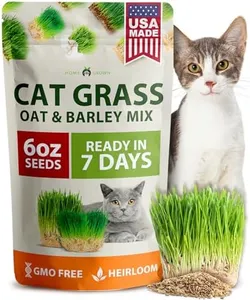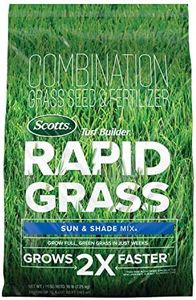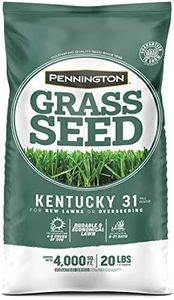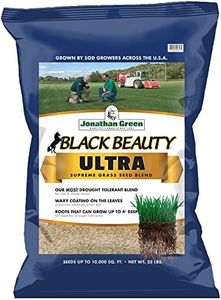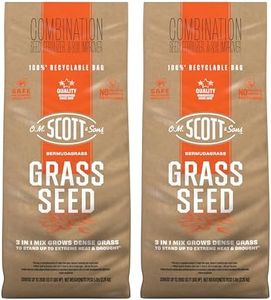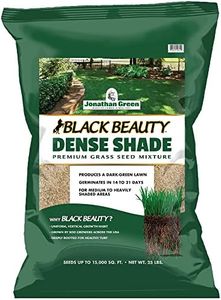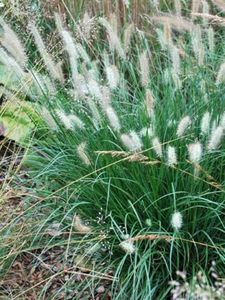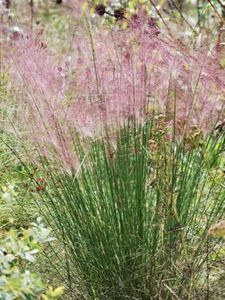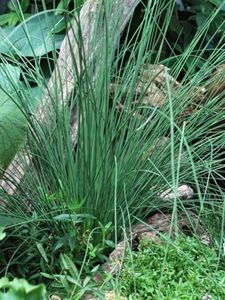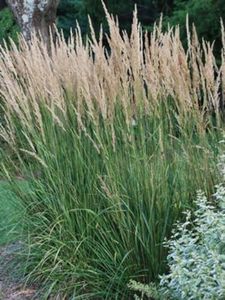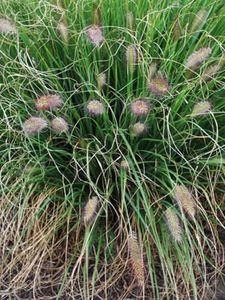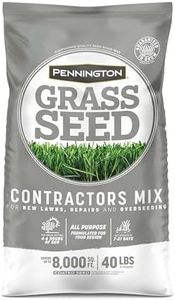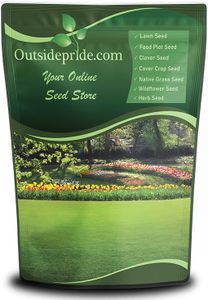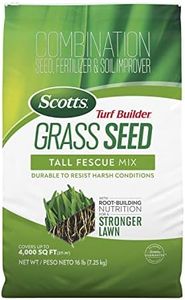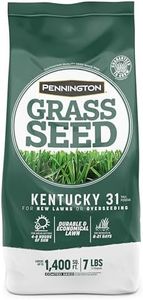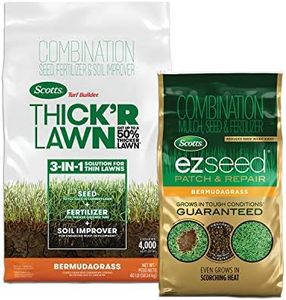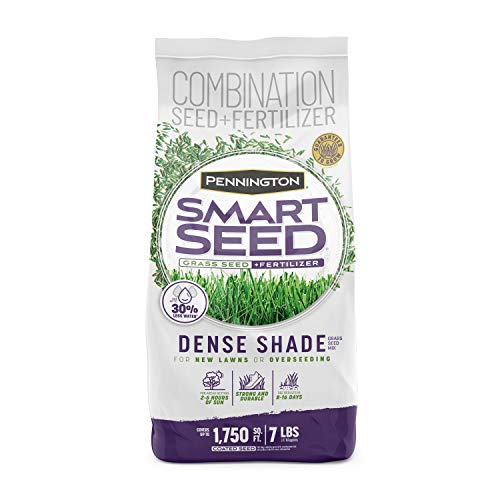10 Best Grass Seeds 2026 in the United States
Our technology thoroughly searches through the online shopping world, reviewing hundreds of sites. We then process and analyze this information, updating in real-time to bring you the latest top-rated products. This way, you always get the best and most current options available.

Our Top Picks
Winner
Scotts Turf Builder Rapid Grass Sun and Shade Mix, Combination Grass Seed and Fertilizer, Grows Green Grass in Just Weeks, 16 lbs.
Most important from
9072 reviews
Scotts Turf Builder Rapid Grass Sun and Shade Mix is designed to quickly grow a green lawn by combining grass seed with fertilizer, promising up to twice the growth speed compared to seed alone. Its blend of Kentucky Bluegrass, Perennial Ryegrass, and Fine Fescue makes it suitable for areas with both sun and shade, offering versatility for different parts of your yard. The included fertilizer supports healthy root development, which helps establish a dense lawn faster. This product is best used in spring or fall when temperatures are moderate, and it requires regular watering until the grass is established. One 16-pound bag covers a large area—up to 2,395 square feet for new lawns or 8,000 square feet for overseeding—making it a practical choice for bigger yards.
This grass mix is tailored for outdoor use and performs best in soil that retains moisture well. It provides a reliable option for homeowners who want to quickly green up their lawn with a blend that thrives in both sun and shade. Those seeking specific features like drought resistance or high traffic durability may want to explore other grass seed blends.
Most important from
9072 reviews
Pennington Kentucky 31 Tall Fescue Grass Seed 20 lb
Most important from
5484 reviews
Pennington Kentucky 31 Tall Fescue Grass Seed is an excellent choice if you're looking for a durable and economical lawn solution. This grass seed is known for its thick blades, which can withstand both hot summers and heavy rains, making it suitable for areas that experience diverse weather conditions. It performs well in full sun and medium shade, offering flexibility for various lawn locations. The grass is lighter green and known for its drought resistance, meaning it can survive with less water, which is a huge plus during dry spells.
Additionally, it holds up well under foot traffic, making it ideal for families and pets who use the yard frequently. You can expect to see results in about 8 to 21 days, and a 20 lb. bag can cover up to 4,000 square feet, providing substantial coverage for larger areas. However, it's important to note that this grass requires regular watering to keep the soil moist, particularly during the initial growth period.
Considering its growth rate and traffic tolerance, it fits well for residential lawns but might not be the best choice for commercial high-traffic areas. Finally, it’s great for spring planting, ensuring a lush green lawn by fall.
Most important from
5484 reviews
Jonathan Green (10323) Black Beauty Ultra Grass Seed - Cool Season Lawn Seed (25 lb)
Most important from
5657 reviews
The Jonathan Green Black Beauty Ultra Grass Seed is an excellent choice for those looking to establish a new lawn or fill in bare patches. This grass seed mix is particularly effective for cool-season areas and features a combination of tall fescue, Kentucky bluegrass, and perennial ryegrass, ensuring a lush, dark green lawn that remains attractive year-round.
One of the standout features is its fast germination time of 7 to 14 days, making it suitable for quick fixes to thin or damaged lawns. It also retains moisture well due to its deep-rooting capability, which can reach up to 4 feet, helping to maintain a healthy lawn even during dry spells. Additionally, it has good traffic tolerance, making it ideal for high-use areas, like family yards or play spaces.
This grass seed thrives in full sun to partial shade and is best planted during specific windows in the year, mainly from mid-August to mid-October, or mid-March through mid-May. It's convenient that a single 25 lb bag can cover up to 5,000 square feet for new lawns or double that for overseeding, which is a great value for larger spaces.
Most important from
5657 reviews
Buying Guide for the Best Grass Seeds
Choosing the right grass seed is essential for creating a lush, green lawn that meets your specific needs. The type of grass seed you select will depend on various factors such as your climate, soil type, and how you plan to use your lawn. Understanding the key specifications of grass seeds will help you make an informed decision and ensure that your lawn thrives.FAQ
Most Popular Categories Right Now
